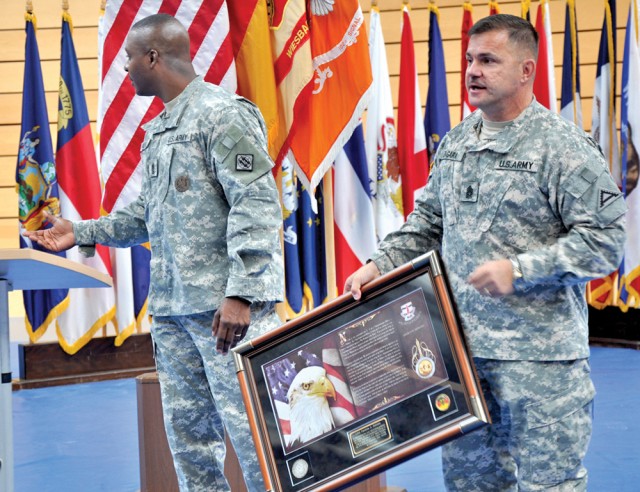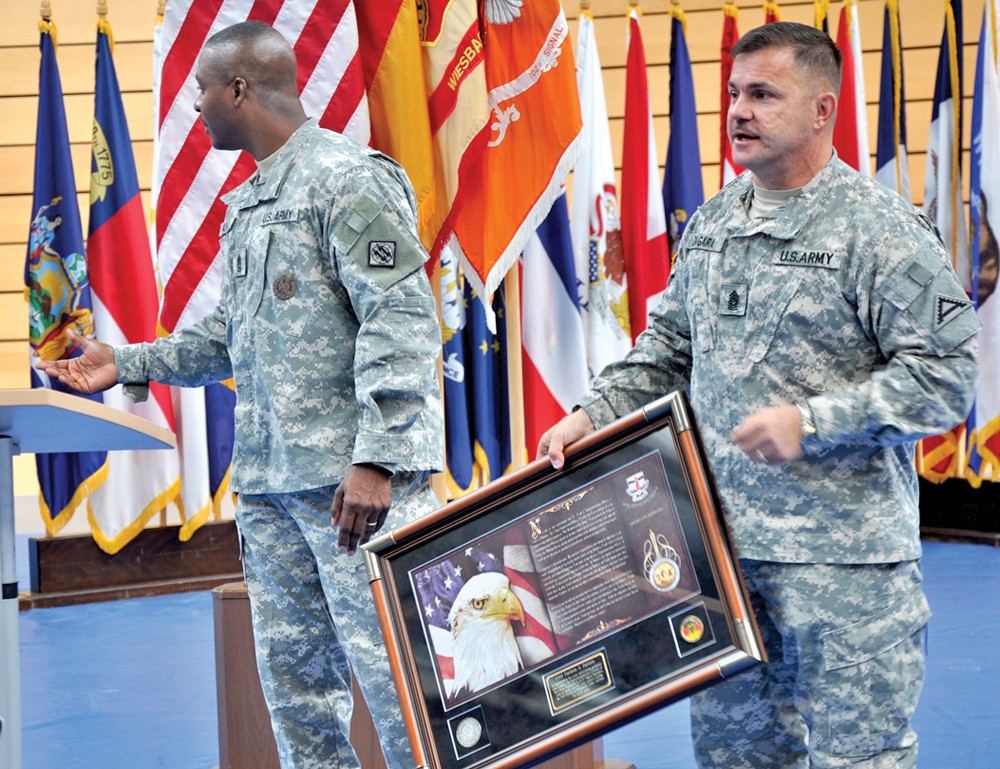WIESBADEN, Germany -- "At the front of every Army mission in the United States or overseas you'll find a noncommissioned officer. They know their missions, they know their equipment, but most importantly they know their Soldiers."
The words, attributed to Secretary of the Army Pete Geren, echoed off the walls in the Wiesbaden Fitness Center as NCOs from across the U.S. Army Garrison Wiesbaden sat in the bleachers and listened.
The 102nd Signal Battalion's July 30, NCO Forum celebrated the Year of the NCO.
And with the offerings of lectures on issues such as the new GI Bill, the I A.M. Strong campaign and financial investments, the forum was also intended to accelerate the development of NCOs, said 102nd Signal Battalion Command Sgt. Maj. Robert Daniel Jr. About 200 NCOs attended lectures throughout the day-long event.
Guest speaker Command Sgt Maj. Darieus ZaGara of the Joint Multinational Training Command noted that today's NCOs are asked to play the parts of leaders, counselors, financial planners and much more.
"In the last 15 years, the Army has taken on a new face," ZaGara said. "You (the Army's NCOs) need to have an identity."
Today in Iraq and Afghanistan NCOs interface with mayors and school teachers, said ZaGara. They keep pace with the Army's requirements through training and distance learning. And they meet the needs of Soldiers.
ZaGara joined the Army in 1981 - four years before the Army officially adopted its noncommissioned officer creed.
While NCOs today memorize the rigid speech reflecting the expectations of an NCO, ZaGara had the Constitution and the Bill of Rights.
He admitted it wasn't patriotism but a troubled circle of friends in Los Angeles, Calif., that pushed him to join the Army. Understanding similar stories of today's young Soldiers, ZaGara noted that the biggest challenge for today's NCOs is that "culturation of Soldiers."
It was that camaraderie among fellow Soldiers that convinced him to stay in for 28 years.
"We are better," said ZaGara. "You are better because you don't fight just for the Constitution but for the men and women on your right and on your left. Simply put, you are the best."


Social Sharing